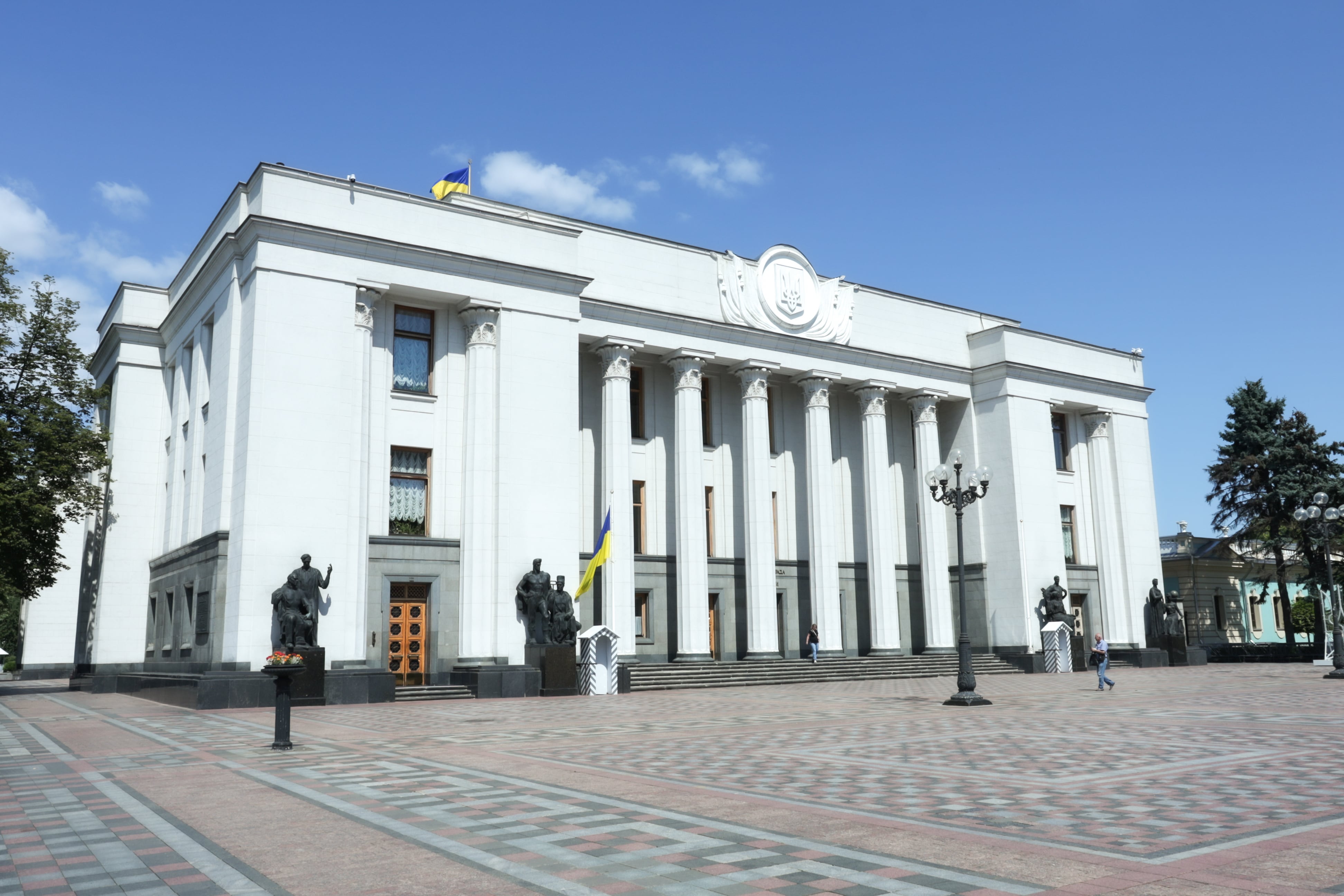Since the onset of the full-scale war of Russia against Ukraine, the Verkhovna Rada has convened 7 times to pass nationally significant decisions. Over this time, MPs have voted over 200 times and passed 103 legal acts. The total number of legislative initiatives registered in slightly over two months is 267. At the same time, the average attendance rates of MPs during the sessions was 88%.
During the open war, legislative initiatives have been drawn by 353 People’s Deputies. Moreover, over on third of initiatives registered in these two months have been voted and passed into the acting regulatory acts.
This kind of high performance of Ukraine’s main legislative authority showed the readiness to efficiently operate during the war and also did not give any leeway to russian propaganda advocates to claim the “chaos” or “paralysis” of government in Ukraine.
In addition, the numbers also prove the full capacity of the parliament to act in emergency, such as to draw up and pass important legislative initiatives.
Voting
OPORA analyzed over 200 votes in the parliament over the past two months of the war. It shall be mentioned that Ukrainian MPs have been more disciplined, as compared with the January 2022. Thus, in the last month before the full-scale invasion of russia, Ukrainian People’s Deputies were absent at 25% of votes. On the other hand, in March, MPs missed 15% of votes, and 9% of votes in April.
The least “disciplined” week in the parliament was the first of russian aggression, from February, 24, to March, 3, 2022. At that time, parliamentary discipline was on January levels — ab. 73%. However, even during these truly hard days, when many MPs engaged into active defense of the country, in different ways, the session room did not have any problems to get over 280 votes in favour.
Disregarding the amendments, the total average number of votes in favour has been 308 votes since the start, or 73% of the total number of MPs. The same as before, People’s Deputies were reluctant to vote against. In both cases, the only exception to the rule was a draft law No.7191 “On Peculiarities of Privatization of State Property in Martial Law.” The initiative on temporary simplification of the small-scale privatization procedures (cancelling the audit, environmental audit, inventory taking, and evaluation) did not receive the support in the parliament.
Lawmaking
Over a period of slightly over two months, People’s Deputies have registered 267 legislative initiatives, mostly draft laws (80%) and also some draft resolutions (19%). They also successfully registered and voted for two proposals of the President to laws No.7179 (On Introducing Changes to the Law of Ukraine “On State Guard of Public Authorities in Ukraine and Public Officials”) and No.7186 (On enhancing the liability for collaborative action and peculiarities of applying preventive measures for committing crimes against the foundations of national and public security).
It is interesting to note that over a third of initiatives registered in the two months have been successfully passed to enter into force as acting regulatory acts. The numbers prove the full capacity of the parliament to draw up and approve important legislative initiatives in emergency. It shall be highlighted that 90% of the registered and passed initiatives were authored by MPs themselves.
In the context of russia’s open aggression, the topics covered by ⅔ of registered initiatives were legal policy (26%), economic policy (25%), and security and defense (14%). The approved initiatives show a similar distribution.
Over a half of registered draft laws were initiated by 1 to 5 MPs. On the other hand, 4 initiatives had 50 co-authors, or more:
- No.7129 — On Entering Changes to the Rules of Procedure of the Verkhovna Rada on Holding Distance Sessions of the Verkhovna Rada; 240 initiators; under consideration.
- No.7276 — Resolution on the Statement of the Verkhovna Rada of Ukraine “On Committing Genocide in Ukraine by the Russian Federation;” 175 initiators; passed.
- No.7229 — On Establishing Awards for the Willingly Transferred Exploitable Combat Machinery of the Aggressor State to the Armed Forces of Ukraine; 52 initiators; passed.
- No.7253 — On Decolonization of Toponymy and Management of the Use of Geographical Names in Settlements of Ukraine; 50 initiators; under consideration.
During the open war phase, legislative initiatives were written by as many as 353 MPs. Besides, 10 MPs participated in the registration of over 30 initiatives. They were Oleksandr Bakumov, Heorhiy Mazurashu, Oleksandr Fediyenko, Oleh Bondarenko, Andriy Klochko, Ruslan Horbenko, Yevhenia Kravchuk, Serhiy Minko, Serhiy Kuzminykh, Olena Moshenets (Serhiy Minko comes from the “For the Future” and others represent the “Servant of the People”).
The largest number of submitted and approved initiatives refer to Oleksandr Bakumov – he could boast of 20 of them, Vyacheslav Medianyk and Halyna Mykhayliuk- 18, each; Serhiy Ionushas – 16, Oleksandr Korniyenko – 14.
In Lieu of Conclusions
Although the information on the performance of the Verkhovna Rada amidst the war is not fully available on the parliament’s official website, for various reasons, we could boldly state that Ukrainian lawmakers showed their effective performance in the settings of russia’s open aggression. Ukrainian parliament never had any issues with the quorum and was highly active in their main field of lawmaking. Furthermore, the website of the Verkhovna Rada, as one of the most frequently visited portals in the world became an important source of information; it posted over 1,140 news reports, and showed that Ukrainian policy makers stay in Ukraine and continue their operations.
We could be certain that the tactics pursued by the Verkhovna Rada turned out quite successful. That is why in conclusion, we could only quote a Chairperson of Verkhovna Rada, Ruslan Stefanchuk: “Before the meetings with the Government, chairs of committees elaborate the legislative initiatives that are further passed by the Parliament, without undue delay and in the aggregate… We are all working together with the people, in a united effort, as one Ukrainian mechanism.”
